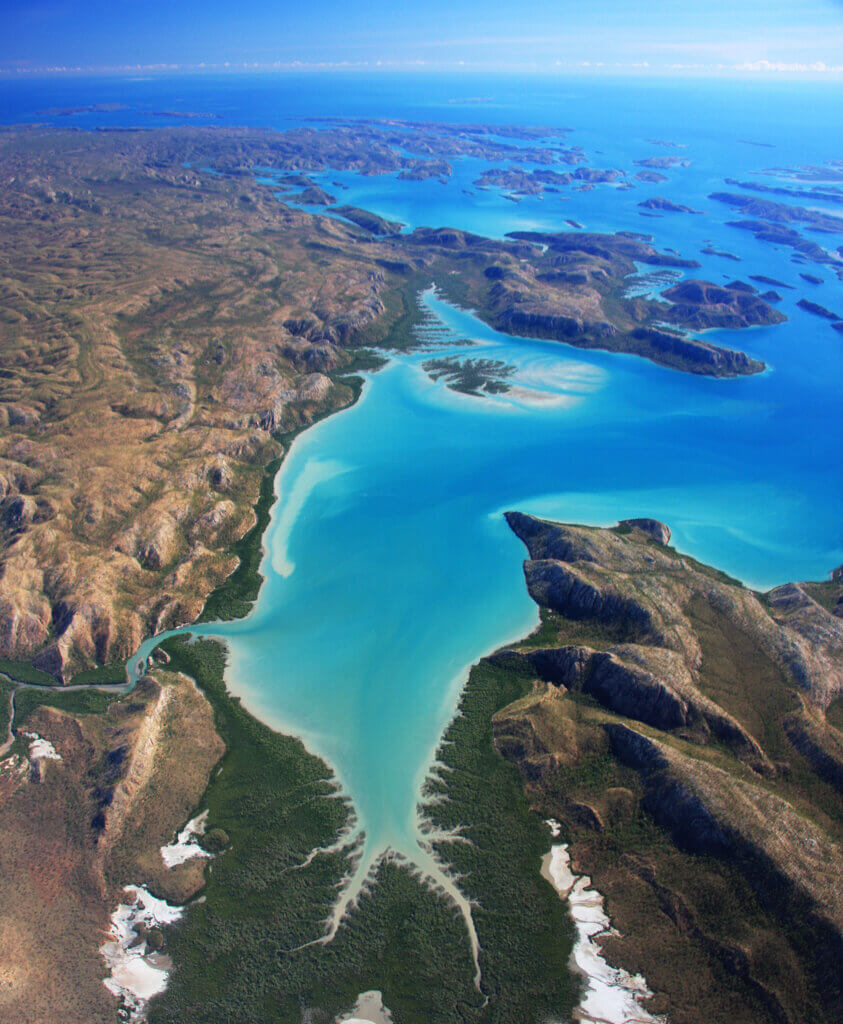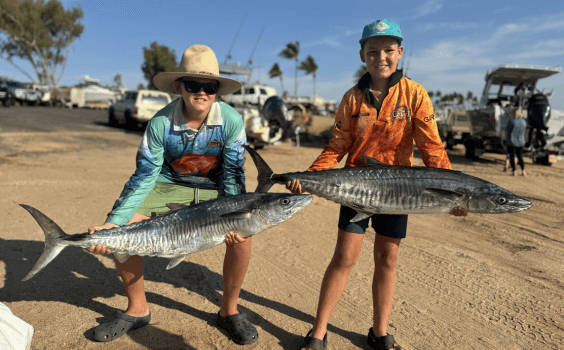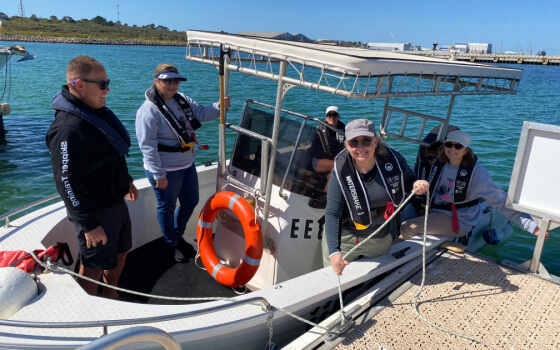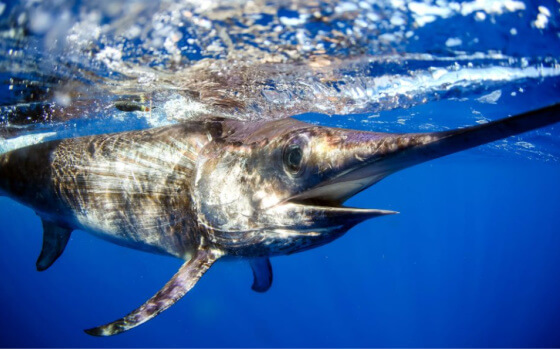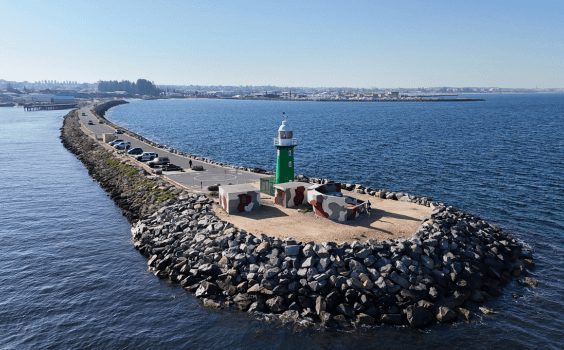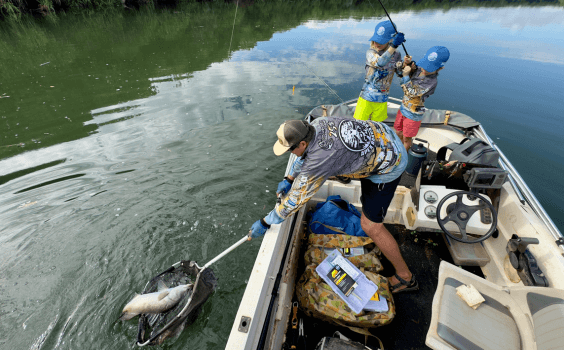Recfishwest has strongly urged DBCA and Traditional Owners to revise their marine park plans for the Kimberley’s Buccaneer Archipelago to preserve fishers’ access to the safest and most valued fishing spots and to allow recfishers and Traditional Owners work together to ensure this special place is looked after forever.
A dedicated Recfishwest team has been working closely with hundreds of Derby and Broome fishers and local fishing clubs since the beginning of the year to assist them in participating in the planning process and develop their public comment submissions to DBCA on the proposed marine parks.
This close consultation and interaction with local fishers has helped form the backbone of Recfishwest’s own submission, which we presented to DBCA last week.
READ OUR FULL SUBMISSION TO DBCA ON THE PROPOSED BUCCANEER MARINE PARKS HERE
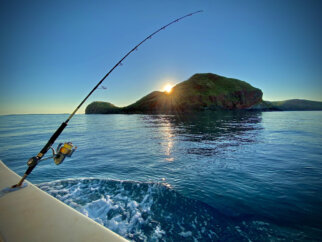
The clear themes and concerns about the proposed marine parks plans that Recfishwest’s grass-roots consultation identified are:
- Fishers support Traditional Owners and traditional knowledge playing a greater role in the management of this area;
- The Buccaneer Archipelago and surrounding waters are a special place for fishing and local fishers and their families – many of whom have fished the Archipelago all their lives and have a deep connection with it. These fishing experiences are a vital part of the fabric of community life;
- At 556,000ha these parks are twice the size of the Ningaloo marine park and almost 60 times larger than the Marmion Marine Park. Unlike the Ningaloo and Marmion marine parks, the draft management plans for the Buccaneer marine parks would prohibit fishing in 95 per cent of the most valuable fishing areas, and this represents a gigantic loss for the recreational fishing community;
- Claims fishing will be allowed in 60 per cent of the marine park are misleading, as the areas to remain open for fishing under the existing plans are largely of little or no value for fishing due to depth, fast tidal flows and featureless bottom habitat devoid of target species;
- The draft plans lack of access to family-friendly fishing experiences such as fishing for mangrove jack, fingermark and barramundi in the creeks and nearshore waters, demonstrates the planning process has so far failed to adequately understand how fishers use and value the area;
- Recreational fishers are supportive of avoiding areas where cultural activities requiring privacy are taking place;
- As much of the water within the proposed parks is u-surveyed and uncharted, it is unclear what is being protected, how it is threatened and the extent to which recreational, cultural, charter and commercial fishing activity poses a threat;
- Given the higher productivity of warmer northern waters, low visitation levels, limited access points and current fishing rules, any ecological impact recreational fishing has within the marine park is likely to be too small to be measured;
- WA is regarded as a global leader in fisheries management – current management in the archipelago includes size limits, bag limits, restrictions on the issuing of new charter licences, limits on commercial fishing activity and gear; and,
- Combined with WA’s reputation for excellence in fisheries management, it is hard to see what additional benefit zoning proposed in the plans will have for fish stocks in the marine parks.
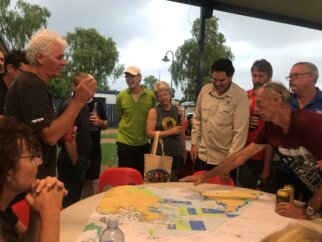
Recfishwest CEO Dr Andrew Rowland said excluding local fishers’ input into the design of the marine parks would be a huge opportunity missed.
“Understandably, local fishers were shocked and disappointed when these plans were first presented in December last year, having been given no opportunity to participate in the initial design of the marine parks as a key stakeholder,” Dr Rowland said.
Willing and constructive engagement by fishers
“But very much to their credit, after some initial tension within sections of the Broome and Derby communities, fishers have willingly and constructively engaged with the Traditional Owners and DBCA to tell them where in the archipelago is so important to them to be able to continue to fish and why.
“Over the last few months, it has become abundantly clear that the fishing community and the Traditional Owners share many values when it comes to interacting with and looking after this special sea country.
“It is also clear that fishers want to learn about what is important to Traditional Owners and work with them to preserve this special place for generations to come. A special place needs special management and if the same tired zoning approach to marine park management is adopted for the archipelago, then the opportunity to have achieved something special will have been missed.
“There are serious concerns also that if the plans are implemented in the way that’s being proposed, it will create long-lasting divisions within the Broome and Derby communities.”
It is for these reasons and others outlined in the submission, that Recfishwest is recommending that recreational fishing is allowed as a permitted activity within the earmarked special purpose (cultural protection) zones in the same way it is permitted in the cultural protection zones in other nearby marine parks.
Recfishwest’s submission also recommends that the need for sanctuary zones is re-examined with the same conservation outcomes achieved if they were re-zoned as cultural protection zones.
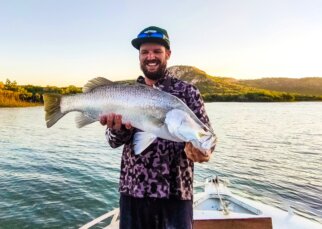
What next?
Even though, the public comment period has now concluded, discussions will continue between DBCA and Traditional Owners around the proposed plans.
“We will continue to work hard to assist the local fishing clubs in their discussions with DBCA and the Traditional Owners and keep our members up to date with developments,” Dr Rowland said.
“In the meantime, we thank everyone who has made submissions to DBCA and engaged in the public consultation in good faith.
“We will do all we can to impress upon DBCA and the Traditional Owners the need to revise the plans for the marine parks to ensure a better outcome for all stakeholders and future marine parks in the archipelago that are aligned to the values of recreation, science, education, conservation, cultural protection and enhanced visitor experiences.”
